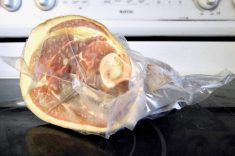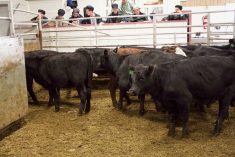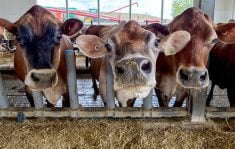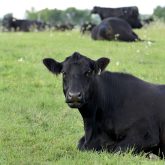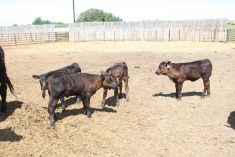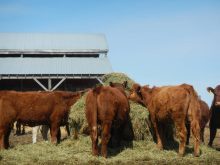Relationships between Canadian, American and Mexican cattle producers developed during country-of-origin labelling talks more than a decade ago may now help protect Canadian producers from damaging tariffs proposed by U.S. President-Elect Donald Trump, according to the former head of the Canadian Cattle Association.
When the Americans first attempted to impose mandatory country-of-origin labelling on cattle, Canadian cattle producers and provincial and federal counterparts lobbied hard to convince American politicians the mandatory rule would be detrimental to the American cattle industry.
But Dave Solverson, head of the Canadian Cattle Association from 2014 to 2016, said it wasn’t until they began making alliances with cattle-producing states, that they started to gain traction and convince American cattle producers the new rule would be more harmful than helpful.
Read Also

KAP flags risky trade for Manitoba farmers
Tariffs, market access uncertainty, trade diversification and export infrastructure top the agenda at Keystone Agricultural Producers (KAP) annual meeting.
“The coalitions we had and our work with the (National Cattlemen’s Beef Association) and state organizations really proved beneficial for both sides,” said Solverson.
“We really concentrated on producer-to-producer (discussions) and went to the state cattlemen meetings and talked about how important it was that they could top up their pens with a good group of Canadian cattle.”
Nebraska and Iowa were the first states to recognize the importance of doing trade with Canada, especially eastern Canadian markets, he said.
“Fortunately, the relationship developed through country-of-origin discussions has continued. We have trilateral meetings three times a year with Mexican, American and Canadian cattlemen. That, of course, will continue and become very important.”
Trump’s threat to add a 25 per cent tariff on Canadian and Mexican goods, including livestock, would devastate the livestock industry, said Solverson. Cattle markets would drop and Canadian cattle producer profits gained since the BSE border closure over 20 years ago would be lost.
Ken Solverson echoed his brother’s concerns. “If our demand shrinks because we are priced out of those markets, it has to affect our bottom line,” he said.
“The cattle cycle is really slow. We were almost where we are now in 2002 and we got smacked down with BSE and it has pretty much taken 20 years to get there again. It will be devastating if we miss another peak. The Americans never missed that last peak, but we did, and we are just trying to get there again.”
Both Canadian and American beef herds are at 60-year lows, said Dave Solverson. That protects Canadian cattle producers right now. With so few cattle in the U.S., feedlots and packers need Canadian cattle and they may convince politicians of the need for the lower-priced Canadian cattle.



